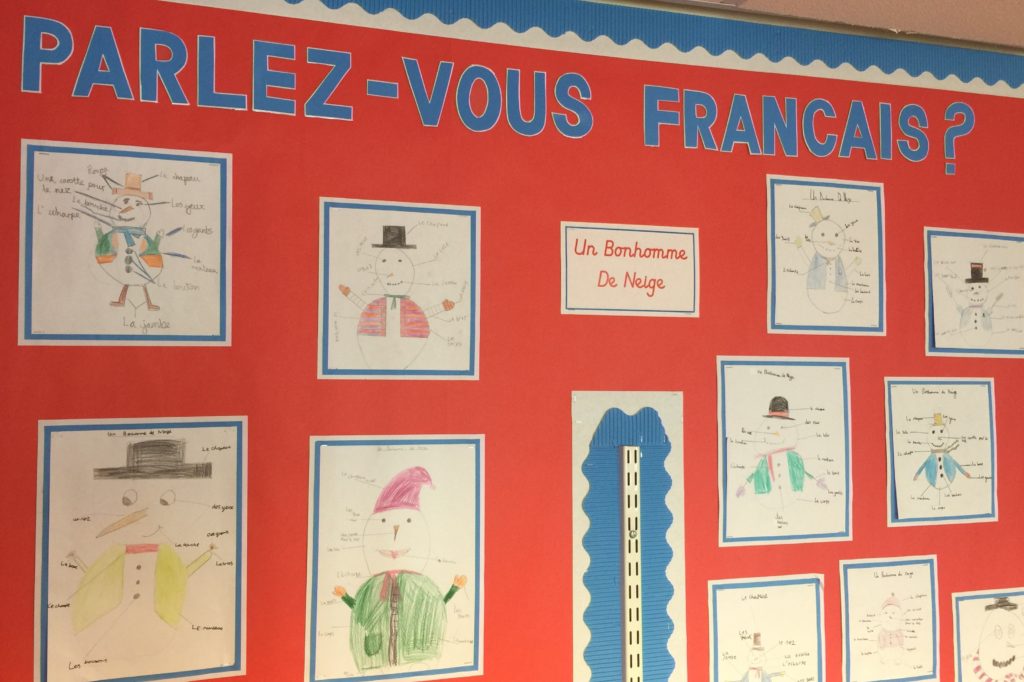
At Hemlington Hall Academy, our children learn to speak French as a further way to learn about another country and another culture. Children are equipped to express their ideas and thoughts in another language through practical and engaging lessons, which including speaking, reading and writing new words, phrases and sentences.
Intent
- Children are taught to develop an interest in learning other languages in a way that is enjoyable and stimulating.
- We encourage children’s confidence and creative skills.
- We strive to stimulate and encourage children’s curiosity about language.
- We help children develop their awareness of cultural differences in other countries.
- We strive to embed the skills of listening, speaking, reading and writing skills necessary to enable children to use and apply their French learning in a variety of contexts and lay the foundations for future language learning.
The document below provides an overview of our French curriculum for each year group. We use Language Angels to support our learning in French.
Our Modern Foreign Languages Curriculum at Hemlington Hall Academy
National Curriculum
Key Stage 2
Pupils should be taught to:
• listen attentively to spoken language and show understanding by joining in and responding
• explore the patterns and sounds of language through songs and rhymes and link the spelling, sound and meaning of words
• engage in conversations; ask and answer questions; express opinions and respond to those of others; seek clarification and help
• speak in sentences, using familiar vocabulary, phrases and basic language structures
• develop accurate pronunciation and intonation so that others understand when they are reading aloud or using familiar words and phrases
• present ideas and information orally to a range of audiences
• read carefully and show understanding of words, phrases and simple writing
• appreciate stories, songs, poems and rhymes in the language
• broaden their vocabulary and develop their ability to understand new words that are introduced into familiar written material, including through using a dictionary
• write phrases from memory, and adapt these to create new sentences, to express ideas clearly
• describe people, places, things and actions orally and in writing
• understand basic grammar appropriate to the language being studied, including (where relevant): feminine, masculine and neuter forms and the conjugation of high-frequency verbs; key features and patterns of the language; how to apply these, for instance, to build sentences; and how these differ from or are similar to English.
MFL lead: Miss Robson




